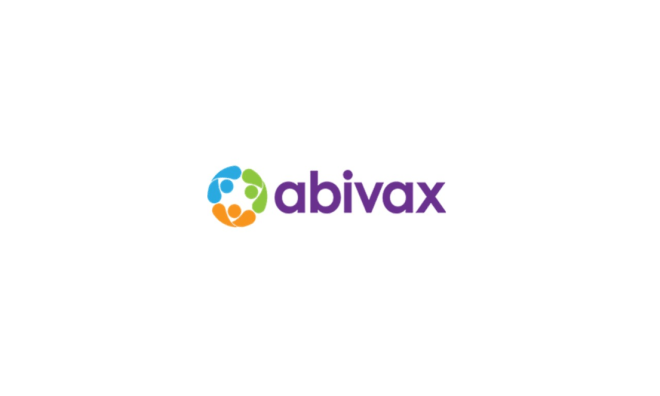

PROMISING PHARMA PLAYS FOR INVESTORS
Download the full Forbes artcile below
The success of the messenger RNA vaccines for Covid-19 developed by Pfizer Inc. (PFE) and Moderna, Inc. (MRNA) underscores the medical advances currently under way that could provide big wins for investors. The RNA-based vaccine has proven very lucrative for investors in Pfizer and Moderna. Pfizer, for instance, recently reported that the vaccine generated $3.5 billion in revenues in the first quarter, almost 25% of total sales. And Moderna reported its first-ever quarterly profit as a result of demand for the Covid vaccine. Of course, future revenue could be compromised if governmental discussions to waive vaccine intellectual property patents were to go into effect. But the success of the RNA vaccine has investors focusing to the future where some leading medical conditions affecting the human body, including cardiovascular disease, a range of cancers and immunology disorders that have long eluded research are enticingly close to realizing viable therapies. “A new day is dawning in medical innovation with a number of promising new treatments and therapies on the cusp of commercialization,” said Antoine Papiernik, managing partner at Sofinnova Partners, a global venture capital firm specializing in companies in the life sciences sector. “These are exciting times in the field of healthcare.” Clinical-stage companies that succeed in crossing the finish line to commercialization offer high rewards to investors willing to provide early funding. Generally, the earlier the investment the larger the potential for outsized gains. On the other hand, early-stage investing tends to carry a heightened level of risk. Each investor needs to assess her own appetite for assuming risk. MORE FOR YOU It’s Not Just Crypto Crashing: Here Are All The Market Bubbles Popping So Far This Year China Cracks Down On Crypto Business, Saying ‘Speculative’ Trading ‘Seriously Infringing’ On Financial Order Cardano Surges During $300 Billion Crypto Crash As Musk Eyes Sustainable Bitcoin Alternatives One of the biotechs with promising therapies under development is Abivax SA (ABVX.PA), which trades on the Euronext exchange in Paris. Abivax, a clinical-stage company, has a lead therapeutic candidate in ABX464 for a variety of inflammatory diseases affecting the digestive tract, bowel and colon, as well as Crohn’s disease, a more generalized condition within the bowel and elsewhere in the human body. “Revenues for patients with moderate to severe UC (ulcerative colitis) across the G7 countries are predicted to go from around $6 billion to $11 or $12 billion, said Dr. Hartmut J. Ehrlich, CEO of Abivax. “It's a very big market, and Crohn's is twice as big as UC, so it's a very big opportunity and medical need.” “ABA464 has what it takes to become a blockbuster,” said Damien Choplain who follows the company for Kepler Cheuvreux in Paris. “The clinical development plan for ABX464 is on track.” He notes that results of several clinical trials for ulcerative colitis, “the major catalyst over the short term,” and Crohn’s disease are expected this year. Prudently, the management of Abivax is expected to license one or more treatments to a Big Pharma company which would shoulder the financial investment to commercialize the therapies. Dr. Chris Redhead, research analyst for Goetz Partners in London, believes a licensing deal this year could produce upfront payments of about 150 million euros. On that basis, he values the stock at 43 euros per share. Abivax closed recently at a price of 25 euros. U.S. based Diffusion Pharmaceuticals, Inc., which trades on Nasdaq under the symbol DFFN, is developing a treatment for low oxygen content in the blood stream, a condition known as hypoxemia. If permitted to worsen, this medical issue can lead to hypoxia, which is the complete deprivation of oxygen to human tissue. The treatment, trans sodium crocetinate (TSC), is designed to enhance the diffusion of oxygen to tissues experiencing low levels of uptake. Earlier this year, the company reported successful trial results for TSC, which was testing for human safety and tolerance. As an immediate next step, the management of Diffusion Pharma, led by CEO Robert J. Cobuzzi, Jr., Ph.D., is pursuing three short-term trials in 2021, which will be funded from the company’s existing cash position, estimated to be about $45 million. These next trials are designed to test the ability of TSC to affect both oxygen transfer in the lungs and delivery of oxygen into tissues. “TSC enhances the way the water molecules in plasma interact with each other,” said Mr. Cobuzzi . “The point [of TSC] is to facilitate the movement of the oxygen into the tissues.” David Bautz, research analyst for Zacks Small Cap Research, has developed a discounted cash flow model for Diffusion Pharmaceuticals that places a current value of $2 on each share of Diffusion stock based on future revenue streams. The stock closed recently at about $0.70. Another life science company on the radar of some savvy investors is San Diego-based DTx Pharma, which recently completed a $100 million financing in which venture capital firm RA Capital Management participated as the lead investor. DTx Pharma is creating novel RNA-based therapeutics to treat the genetic drivers of disease with initial attention placed eye disease and neuromuscular disorders. Specific conditions the company is seeking to treat are retinitis pigmentosa and Charcot Marie Tooth 1A (CMT1A). DTx Pharma has launched development programs within both disease areas and early-stage trials with non-human primates have started, with data expected this quarter. Harnessing the twin disciplines of biology and chemistry, DTx Pharma has discovered new methods employing fatty acids to improve the delivery of RNA to targeted cells. The company is also addressing the challenge of clearance by the kidneys, which happens so rapidly that other tissues— muscles, heart, nerves, etc.— are never exposed to the drugs. “Many companies are seeking to harness RNA therapies given the versatility and limitless potential of this class of medicines,” said Arthur Suckow, founder and CEO of DTx Pharma. “Whether the therapies are being leveraged to replace a missing or mutated gene or alternatively, to interfere with gene expression, this class of medicines is set to make a lot of noise over the coming years. With the amount of research being conducted in this field, there is no doubt that the best of these options will see the spotlight in the years to come.” Apart from the messenger RNA-based Covid-19 vaccines by Pfizer and Moderna, there have only been three developed and FDA approved siRNA- based treatments, all targeting cells in the liver. But companies like DTx Pharma are well on their way to expanding the field of RNA therapies and treat disease.



